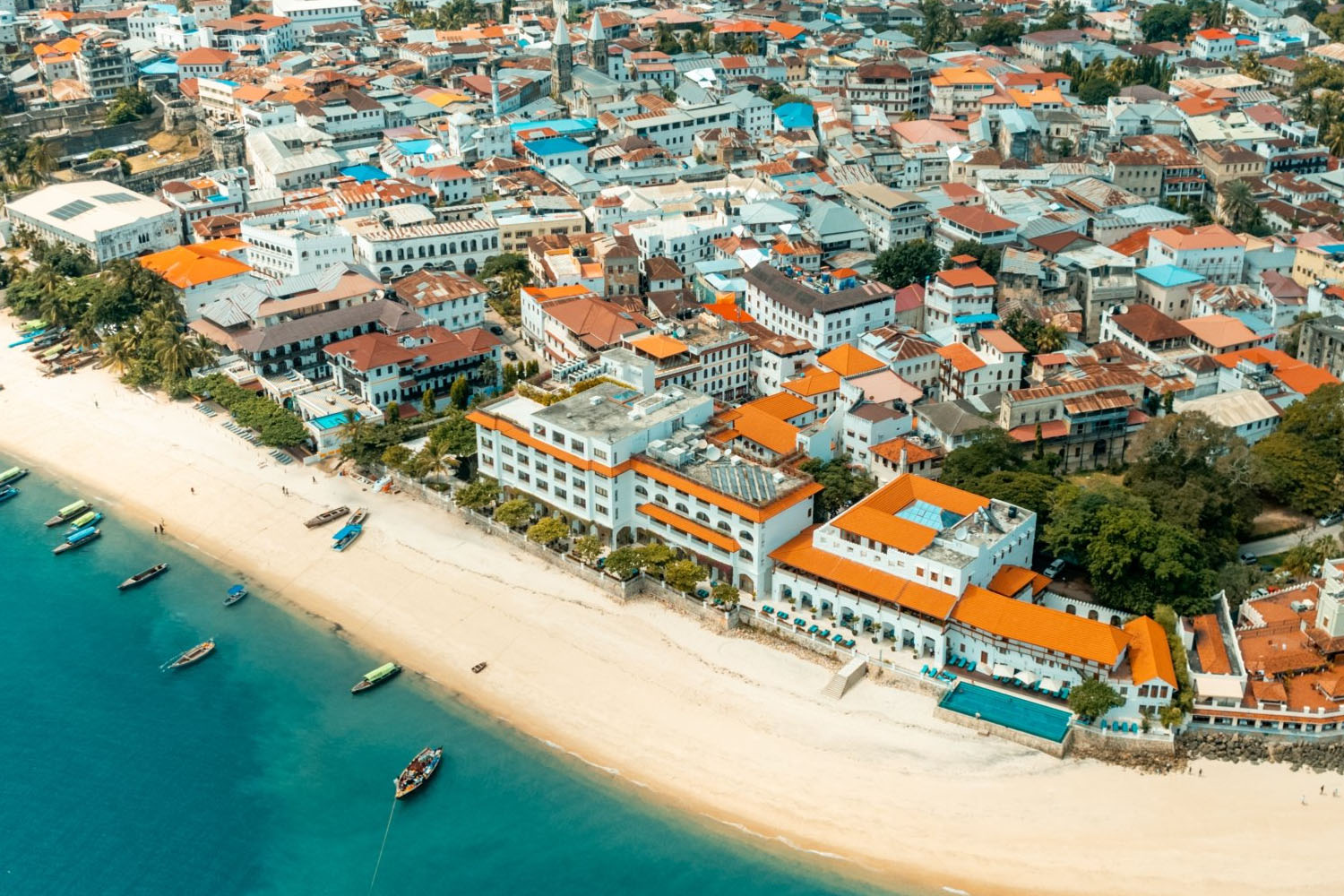
Photo Credit: Shutterstock
The semi-autonomous archipelago of Zanzibar is located 23 miles from mainland Tanzania. Although it is officially part of Tanzania, life in Zanzibar is different in almost all aspects, including politics, religion, culture, and food. The island became a hub for the region's slave and spice trades due to its location as a base for traders from the African Lakes region, India, and the Arabian peninsula. Most Zanzibaris consider themselves Zanzibari rather than Tanzanian, and the territory has its leader and governing bodies.
Zanzibar is almost entirely Muslim, whereas mainland Tanzania is a mix of Christian, Muslim, and indigenous groups. Timekeeping on the island is initially confusing but makes a lot of sense. People start counting time at sunrise instead of midnight, so 7 a.m. Western time is one o'clock in the morning Swahili time, and 7 p.m. is one o'clock at night. This works because sunset and sunrise times are relatively constant year-round since Zanzibar is so close to the equator.
Transit to Zanzibar can be made by plane or boat, with departures from Dar Es Salaam. A shaky Cessna takes approximately half an hour to reach the island, while the ferry is cheaper and more enjoyable. The high-speed boats run four times a day each way, taking about two hours, with a ticket price less than half of what it costs to fly. The high-speed boats are safe, modern, and comfortable, despite exaggerated travel advisories mentioning capsizing vessels.
Swahili is an easy language to pick up, and the initial learning curve is quick. Learning just the basics will take you pretty far. It's a good idea to say hello back to the locals who greet you on the street, as this is an important part of their culture. The ancient city of Stone Town is charming but a maze, making receiving directions through the town's winding alleys a confusing task. Street names exist, but no one uses them. However, locals are helpful, and it's okay to ask for directions multiple times.
In Zanzibar, life moves” pole pole”, which is Swahili for slow. Things in Zanzibar don't always make sense, don't always work, and can take a while. It's important to enjoy the calm chaos and take a cue from the unhurried pace. Your smoothie might take 45 minutes to show up, but it will be delicious and worth the wait. Lazuli, a tiny but wonderful restaurant in Stone Town, is a good place to experience this.
Zanzibar has become host to some of East Africa's most luxurious resorts, which can be a jarring contrast to what is an otherwise quiet, economically challenged island. If you're looking for a beach escape with other Westerners, head north to Nungwi and Kendwa, where you'll find the same all-inclusive packages and beach discos you'll find in most other warm parts of the world. For a slightly more Zanzibari experience, try quieter towns like Bwejuu or Jambiani, where your slice of island paradise is mixed with the rhythms of village life.
Zanzibar experiences long rains and short rains every year. The long rainy season lasts from March until May and is not ideal for beach holidays due to the epic monsoons that occur. The short rainy season takes place between November and December but is not as intense.
















